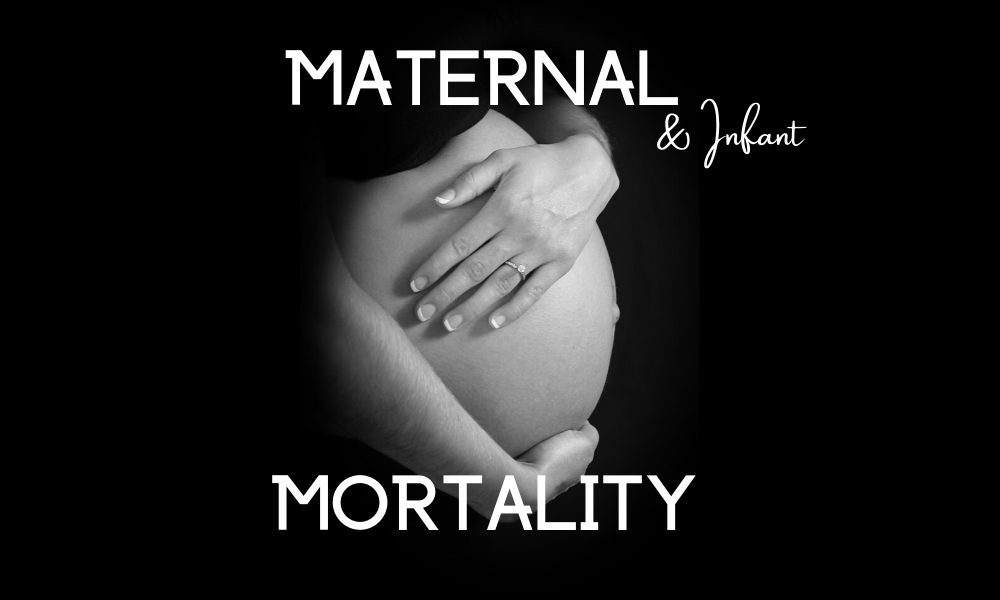
The 2020 Report Card by March of Dimes doesn’t portray Georgia too well.
The 2020 Report Card, which includes policy and program recommendations that can help states address disparities and allow women greater access to preventative and essential care and resources during and post pregnancy, highlights that the U.S. remains among the most dangerous developed nations for childbirth and it’s even more dire for women and babies of color. In Georgia the preterm birth rate in 2019 was 11.7%, earning the state an “F” grade. Preterm birth is a leading cause of infant mortality, which has slowly declined nationally over the past few years. Yet, in the U.S., two babies die every hour, and two women die from pregnancy complications every day. The Report Card found that in Georgia, 889 babies died before their first birthday in 2018.
Additionally, March of Dimes s calling for ‘racial justice, shining a spotlight on factors that contribute to maternal and infant health across the U.S. and in Georgia.’
From the news release:
Preterm birth and infant mortality rates are worse for moms and babies of color. The Report Card shows significant racial disparities that cut across maternal and infant health. In Georgia, Black women had the highest rates of infant mortality at 11.1 per 1,000 live births.
“Although there has been some incremental progress in advancing policies that will address better maternal and infant health care, this progress is not happening quick enough, and is tempered by increasing racial/ethnic health care disparities in preterm birth,” said Stacey D. Stewart, President and CEO of March of Dimes. “At a time of racial awakening in our nation, we must amplify our efforts to decrease deaths and health challenges facing our nation’s moms and babies and enact new policies that support health equity.”
The Report Card grades the U.S., 50 states and Puerto Rico on rates of preterm birth. This year’s Report Card found that nationally the preterm birth rate has increased for the 5th year in a row to 10.2% of births, earning the nation a “C-” compared to last year’s “C” grade. Additionally, the Report Card grades the 100 largest cities based on birth in the U.S. on their preterm birth rates. Atlanta received a “D-” grade, with a rate of 11.4% for preterm birth.
While there is no single cause to this complex maternal and infant health crisis in the U.S., contributing factors include maternal health and management of preexisting conditions. They also include social determinants of health such as being uninsured, living in poverty and having inadequate prenatal care – which the Report Card shows most often affect women of color. In Georgia, 17.8% of women receive inadequate prenatal care; 19.4% of women ages 15-44 are uninsured; and 15.2% of women ages 15-44 are in poverty. Systemic challenges with health care and deeply entrenched structural racism are fueling this health equity gap.
“A priority for March of Dimes is to close the health equity gap across the country,” said Dr. Rahul Gupta, Chief Medical and Health Officer, Senior Vice President, and Interim Chief Scientific Officer at March of Dimes. “Using the concrete, detailed evidence in the 2020 Report Card, we can identify common-sense steps to reverse the alarming trends. A part of this work, we recognize a lack of uniform reporting and inconsistent access to real-time maternal and infant health data is impeding progress. Particularly during a pandemic, we need access to robust, uniform data sharing to inform evidence-based strategies that can be implemented across public and private sectors to address the specific needs of this crisis.”
March of Dimes says state local legislation is needed to “fill the gaps associated with access to maternity care for women in rural and underserved communities” in addition to “education and implicit bias training to equip health care professionals with the tools they need to eliminate institutional racism in our health care system and provide more culturally competent care no matter where they practice.”
Through the #BlanketChange movement, March of Dimes is urging policymakers and political candidates to protect and improve maternal heath by taking immediate action on series of policies to address equity, access and prevention. To learn more about the #BlanketChange agenda, click here.
Jessica Szilagyi is a former Statewide Contributor for AllOnGeorgia.com.

1 Comment
Leave a Reply
Cancel reply
Leave a Reply

Bulloch Public Safety
02/23/2026 Booking Report for Bulloch County

Chattooga Local News
Postal Service Celebrates Bruce Lee

Bulloch Public Safety
GDOT: Traffic Impacts for the I-16 at I-95 Improvement Projects Through February 28

Bulloch Public Safety
01/26/2026 Booking Report for Bulloch County

Bulloch Public Safety
02/09/2026 Booking Report for Bulloch County

Bulloch Public Safety
02/16/2026 Booking Report for Bulloch County

Bulloch Public Safety
02/02/2026 Booking Report for Bulloch County

Bulloch Public Safety
02/20/2026 Booking Report for Bulloch County







NELDA SMITH
November 24, 2020 at 10:13 pm
In 1977 after the birth of my Agent Orange Baby, when I went to T.C. THOMPSON’S BIRTH DEFECTS OFFICE (partially funded by March of Dimes) , I was told he could not live and to walk away and let my baby die. After T.C. THOMPSON CHILDREN’S HOSPITAL put my baby and Chickamauga’s baby Brian Alexander on life support out on the sidewalk because ALLSTATE FAMILY HEALTH INSURANCE had dropped their coverage, Baby BRIAN ALEXANDER DIED…my baby (with State Patrol escort) made it to Henrietta Egleston Hospital in Atlanta (spent 7 years there) and is 43 years old today (with 180+ IQ). I would say MARCH OF DIMES is a WORTHLESS GLOBALIST ORGANIZATION. HAVE YOU EVER FOUND A CHILD THAT MARCH OF DIMES ACTUALLY DID ANYTHING FOR / HELPED?